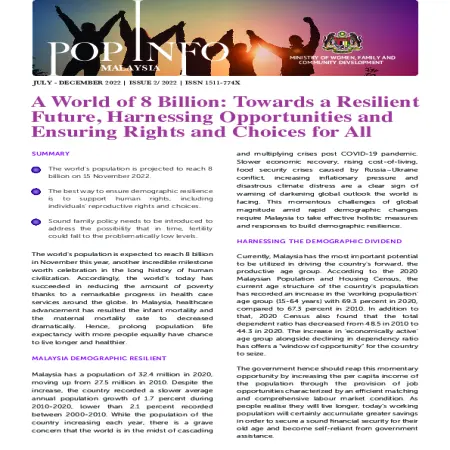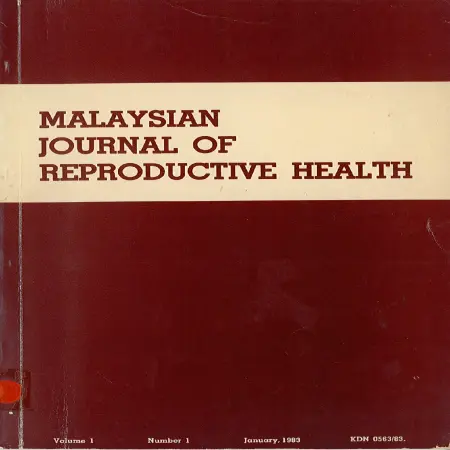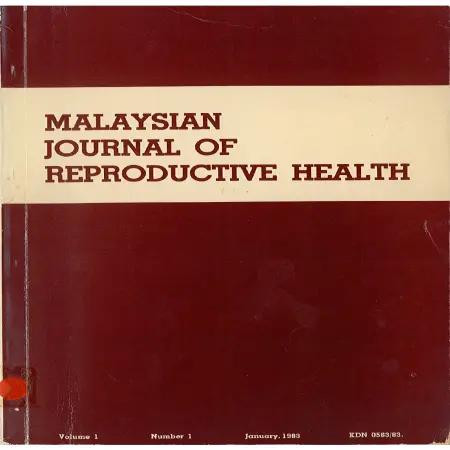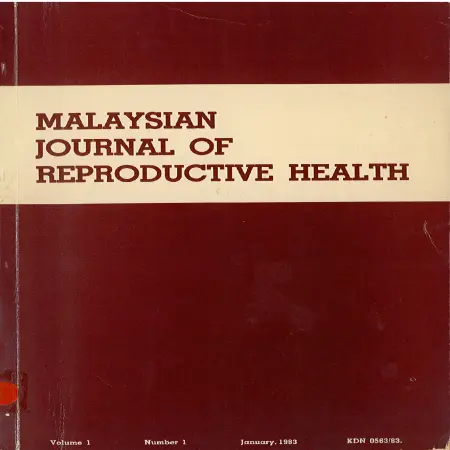TOPICS
Results for Topics : "Reproductive Health"
|
|
A world of 8 billion: Towards a resilient future, harnessing opportunities and ensuring rights and choices for all
Item Type: Newsletter
Editor:
Year: 00/11/2022
Abstract: The world's population is projected to reach 8 billion on 15 November 2022. The best way to ensure demographic resilience is to support human rights, including individuals' reproductive rights and choices.
|
|
|
|
|
|
A Study on health status of youth in Malaysia
Item Type: Research Report
Editor:
Year: 00/00/2010
Abstract: This study analyzed health screening of 22,840 youths, who were distributed equally by ethnicity and camp sessions. Based on the analysis, 21.6% of youths were underweight, 18.1% pre-obese and 10.3% obese, with 0.3% perceived having body image disorders. With regards to sexual and reproductive health issues, 39.6% admitted viewing pornographic materials, 28.5% practiced masturbation, 6.5% engaged in premarital sexual relationships, 5.5% had multiple partners and 1.6% had been involved in homosexual relationships. History of abortion was discovered by 0.5% of the respondents. Almost a quarter of the youths were smokers, while 8.7% had consumed alcohol and 1.4% admitted taking drugs. The study also revealed that 6.2% of respondents reported to have past involvement in bully and 14.1% in fight. About 7.1% of the respondents revealed they had been physically abused while 1.2% of them had been sexually abused. Mental health problems were noted in 27.5% of the youths, with depression in 9.8% of the youths, anxiety in 20.7% and suicidal ideation in 11.8%. Psycho-social problems such as substance use, antisocial behavior, physical/sexual abuse and mental health problems among youth are interrelated with common risk and protective factors. Management of psycho-social problems in youths should be holistic; looking into risk and protective factors. Programs and interventions should focus on strengthening of protective factors among youth such as family connectedness and religiosity.
|
|
|
|
|
|
Apparent benefit from corticosteroids in bronchopulmonary dysplasia: a case report
Item Type: Article
Editor:
Year: 00/00/1984
Abstract: A case of bronchopulmonary dysplasia complicating the ventilatory management of respiratory distress syndrome is described. The diagnosis was documented by typical clinical radiological and cytopathologic criteria. The infant's abrupt clinical deterioration was reversed by the use of high dosage steroids and attempt at reducing the dose of steroids initially was associated with clinical and radiological deterioration. We conclude that steroid administration seemed beneficial in our patient.
|
|
|
|
|
|
Age of biological maturity of Malaysian girls by ethnicity
Item Type: Article
Editor:
Year: 00/01/1983
Abstract: This study tries to estimate the age of biological maturity of Malaysian girls by ethnicity by employing an indirect methodology. Age at biological maturity is estimated by considering retrospective fertility and family survey data on marriage, first birth, and contraceptive use. The waiting time for the biological mature females to conceive is 3.0 months; 3.2 months among the Malays, 2.7 months among the Chinese, and 2.8 months among the Indians.The maximum age of attaining biological maturity is 20 for all ethnic groups except Indians (19 years). The expected age biological maturity at birth is 15.6 years; 15.3 years for the Malays, 15.4 for the Chinese and 14.8 years for the Indians.The mean age of attaining biological maturity coincides with the expected age of attaining biological maturity at birth.
|
|
|
|
|
|
Actinomyces-like organisms in the cervical smears of IUCD users
Item Type: Article
Editor:
Year: 00/01/1983
Abstract: Cervical smears of 128 intrauterine contraceptive device users were stained by Gram stain and screened for the presence of Actinomyces-like organisms. Actinomyces-like organisms were observed in 5.5 percent, pus cell in 20.1 percent and yeast cells in 10.2 percent of the smears examined. The average duration of insertion was 8 months. Smears of 103 controls were negative for Actinomyces-like organisms, pus cells were observed in 8.7 percent and yeasts in 4.8 percent.
|
|
|
|








